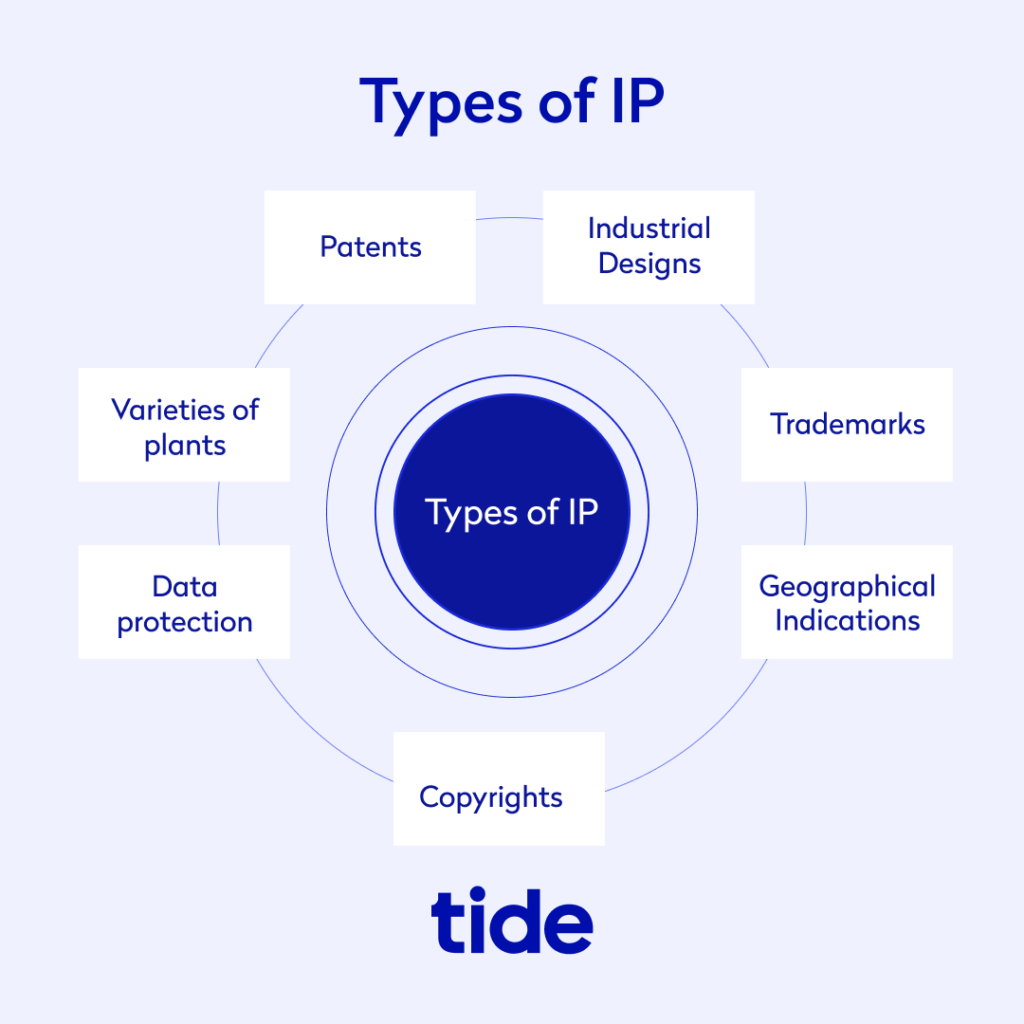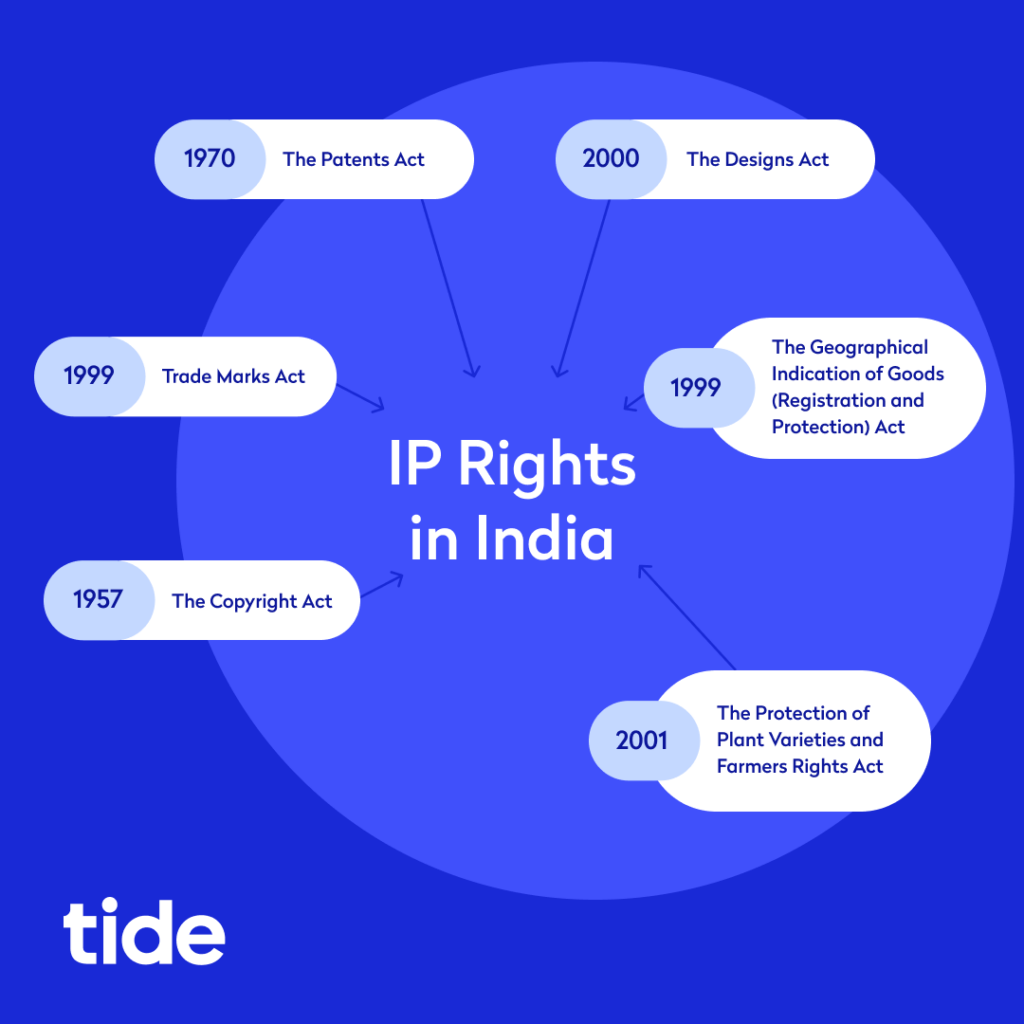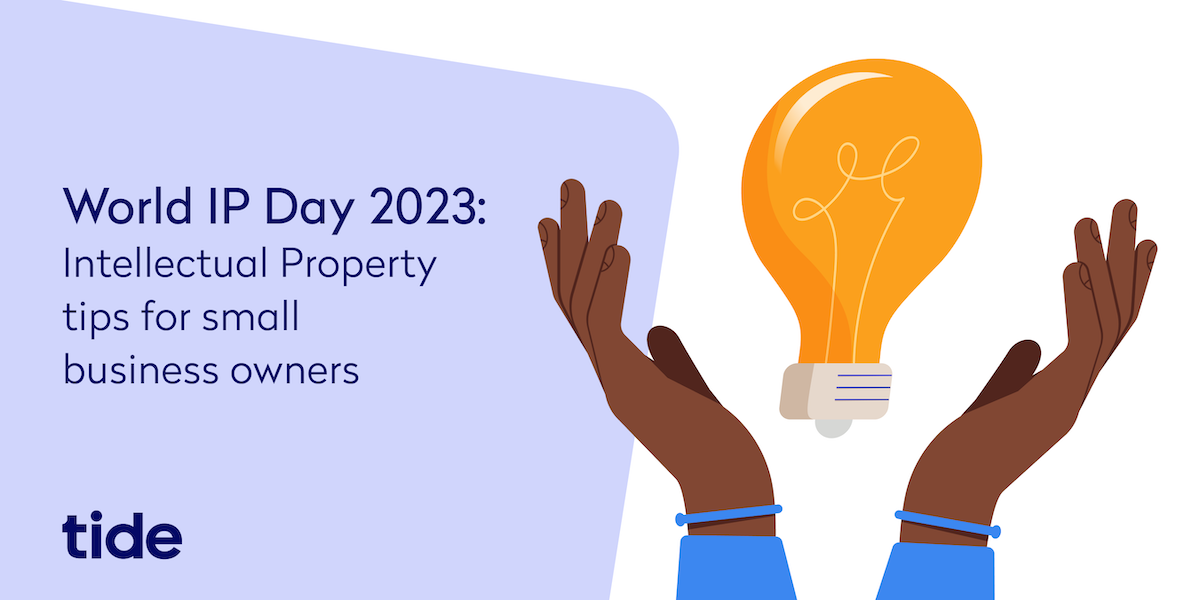
How can small businesses protect their Intellectual Property?

What’s one of the first things to do when you identify a new business idea? You might think of things like – coming up with a name for your business, registering your company, finding a business partner, etc. While all these things are essential, before bringing forth your new business idea to the world, you must consider protecting your intellectual property (IP).
According to the World Intellectual Property Organisation (WIPO), “Intellectual property (IP) refers to creations of the mind, such as inventions; literary and artistic works; designs; and symbols, names and images used in commerce.” An IP can be anything that you create and intend to put into the public domain. To protect IPs, Intellectual Property Rights (IPR) have been instituted that enact safeguards from a person, a group or a business who may attempt to replicate or steal it and claim it as their own.
Protecting your small business’ IP will play a crucial role in whether or not your company will achieve success. Remember, your core business assets are valuable and thus protecting them early is critical.
In this article, we’ll explain what an intellectual property is, what are the different types of IPs in India and explain ways to protect your IP.
Table of contents:
- What is intellectual property?
- Why is it important to protect intellectual property?
- What are the different types of intellectual properties?
- How to protect your IP?
- Useful insights
What is intellectual property?
While we have defined what an IP means earlier, let’s understand its meaning in a more simplified way. An IP is an overarching term to describe anything that you create and intend to protect from unauthorised use. An IP can include a product, a software, artwork, images, software, literary work, etc. Since it is an original creation, the person(s) who create the IP have the lawful right to protect it from exploitation or replication without permission.
A person or a business is considered an owner of an IP if:
- They have created a logo, invention, design or other kind of creation, and have legal rights over them
- Meets the requirements/specifications of IP protection as per prevailing and applicable laws to intellectual properties in India.
- Bought IP rights from the original creator and/or the previous owner
Intellectual Property can:
- Have more than one owner if the idea was conceived by more than one person
- Belong to either an individual person (or persons) or a business
- Be sold or transferred
- Can be licensed, which involves giving the right to another person or business to use the IP. This could involve granting permission to another person or entity with the intention of no longer owning that IP thereafter
Why is it important to protect intellectual property?
To protect the interests and future prospects of your small business or startup, you should strongly consider protecting your IP. That checklist for the various IP includes, but is not limited to, your company name, logo(s), trademarks, software code etc.
A small business or startup owner invests a lot of time, energy and resources into entrepreneurship, materialising an idea and business plans. The last thing that you want to do is fail to safeguard your hard work and risk any third party stealing or copying it to make profit.
However, protecting your IP doesn’t guarantee that a third party won’t attempt to copy your idea. This is especially common among small businesses in India where companies could make minor tweaks to duplicate the products. The Indian economy loses Rs 1.17 lakh crore due to smuggling & counterfeiting in five prominent sectors including Capital Goods (Machinery and Parts) and Consumer (Electronics) Durables, according to a FICCI Cascade report. The goods sales from counterfeiting is expected to double globally to Rs 119.7 lakh crore by 2022.* Thus, taking the steps to protect your IP makes it easier to not only safeguard your idea but to take legal action against a person or business who attempts to steal it.
Intellectual property rights (IPRs), are powerful tools that can help to shield your IP from harm whilst protecting your market share. As a holder of IPR you have exclusive rights to maintain an indefinite monopoly over the market, as long as you consistently renew them.
What are the different types of intellectual properties?
We have compiled different types of IPs that fall under the purview of the Indian law. The govt. of India identifies the following as various forms of IPs – patents, industrial designs, trademarks, and geographical indications. Additionally, there are other IPs including copyrights, and plant varieties.
| 🤔FYI – All registration rights over IPs are granted for a time period/frame, depending on the type of IP and as per the applicable IP laws in India |
Let’s us briefly understand the various types of IP:

- Patents – A Patent is a statutory right for an invention granted by the Government, in exchange of full disclosure of the invention. It entitles the patent holder to prohibit others from making, using, selling, importing the patented product or process for producing that product for those purposes without consent.
- Industrial Designs or Designs – Design means only the features of shape, configuration, pattern or ornament or composition of lines or colour or combination thereof applied to any article whether two dimensional or three dimensional or in both forms, by any industrial process or means, whether manual, mechanical or chemical, separate or combined
- Trademarks – A trademark is a sign capable of distinguishing the goods or services of one enterprise from those of other enterprises. A trademark helps consumers recognise the source and determine the quality to make to make a purchasing decision
- Geographical Indications – These are are defined as that aspect of industrial property which refer to the geographical indication referring to a country or to a place situated therein as being the country or place of origin of that product
- Copyright – It is a legal term that preserves the right of artistic endeavours which could include painting, sculpting, drawing, engraving, photography, dramatic/ literary/ musical work, etc. Copyright protection extends only to expressions, and not to ideas, procedures, methods of operation or mathematical concepts as such.
- Varieties of plants – They denote a group of organisms sharing a long number of heritable characteristics, which are reproductively isolated
- Data Protection: Data can be classified as an IP because the use of data by third parties requires the authorisation of the data owner or the licence to the data sub-license by a party authorised by the owner
How to protect your IP?

We recommend the following ways to protect your Intellectual Property:
- Thoroughly check if your business idea is unique. You can conduct trademark, industrial design and patent searches
- Keep your IP under scrutiny. For eg, make sure that remote employees are accessing your IP in the desired manner
- Be aware of the IP rights. Study the relevance of copyrights, trademarks, patents, etc. to protect your business
- Always consult a legal advisor.
- As a small business owner, it’s best practice to clearly state in all contracts that IP created by a contractor or employee will belong to your business. This will help you to avoid any potential legal issues or liability, should it arise.
- Hire an auditor for distinguishing between the registered and non-registered copyrights and trademarks
- Protect your IP without any delay
| 💡Pro Tip – If you are self-employed, you will own your IP as long as you create it for yourself. However, if you are contracted by a person or business, under a legal agreement, the IP you create is presumed to be owned by the person or business you create it for. |
| 💡Pro Tip: If you are planning to discuss your business ideas with someone to get their feedback but you have not applied for an IP, you must use a business confidentiality agreement such as a non-disclosure agreement (NDA) or a non-compete agreement. |
Intellectual property rights in India is governed under the following Acts:

Trade Marks Act, 1999 – Trademark grants the owner the right to use the unique trademark or a service mark which helps to distinguish the products in form of goods or services from others including the competitors. It helps to create goodwill and trust for your brand, recognises the product’s quality and distinguishes it from the competitors.
The Patents Act, 1970 – Under this Act, the patentee has the right to prevent others from using the process, using the product directly obtained by the process, offering for sale, selling or importing the product in India directly obtained by the process. It helps prevent others from making, using, offering for sale, selling or importing the patented product in India.
The Copyright Act, 1957 – The Act protects the Music and Film Industry and addresses its concerns; to address the concerns of the physically disabled and to protect the interests of the author of any work; Incidental changes; to remove operational facilities; and enforcement of rights.It enables..
The Designs Act, 2000 – It offers registered designs ten years of Design protection with the extra renewal of five years. Protection of Design is an effective method to safeguard industrial and product designs from copying or duplication amidst rigid market competition.
The Geographical Indication of Goods (Registration and Protection) Act, 1999 – A Geographical Indication (GI) grants its owner and the authorised users the exclusive right to use the indications on the goods in which it is registered. It protects a GI against infringement and recovery of damages for such infringement.
The Protection of Plant Varieties and Farmers Rights Act, 2001 – It provides for the establishment of an effective system for protection of plant varieties, the rights of farmers and plant breeders, and to encourage the development and cultivation of new varieties of plants.
💡Useful insights
🤔What should you do if you suspect someone has infringed your intellectual property?
- First of all, do not panic
- Try and avoid engaging with the alleged infringer. Any correspondence that you share with them could be used in court
- Instead, try to gather your thoughts and take a few days to fully understand the extent of the infringement and best course of action to remedy
- The next step is to prepare a carefully crafted cease and desist letter that:
- Sets out your complaint in detail
- Identifies the intellectual property rights on which your complaint is based
Provides details of the remedy you are seeking
- Consult a legal expert to help you prepare your case and all documentation. An IP lawyer/legal advisor can provide legal guidance and help to bring greater credibility to your correspondence
- You should provide the alleged infringer with a reasonable period to reply. Determine the period of the notice in consultation with the legal expert
- Issuing legal proceedings is a big step. At this stage you need to be certain of the facts of the matter and clear on the strengths and weaknesses of your case
- Consult your legal advisor to advise you if the dispute can be settled out of the court
- If legal proceedings are required, you need to be aware of the potential costs and timescales involved. Your legal advisor will be able to provide you with this information.
🤔How early in your business ideation process should you consider securing your business intellectual property rights?
- Intellectual property should be your priority right from the outset
- An idea on its own is generally not protectable. Intellectual property serves to provide protection for the way in which an idea is reduced to practice
- The timing for filing intellectual property applications is very much assessed on a case by case by basis
- As a general guide:
- Patent applications should be filed prior to any non-confidential disclosure of the invention
- If detailed information needs to be submitted under NDA it would also be beneficial to file patent applications prior to such disclosure.
- Trademark applications should be filed once a brand has been decided upon. It is generally more important to file word mark applications first and logos later. This is because logos can often change pre-launch.
- Registered design applications should also generally be filed prior to any disclosure of the design outside of NDA
Wrapping up
As much as it is important to create a unique, brilliant and profitable IP, it is equally critical to protect it. By exploiting loopholes, it could be easy for a third party to copy, steal or claim your work for their own benefit. Without IP protection, you risk jeopardising your company’s success and long-term business prospects.
That’s why IP rights have been instituted to put up a virtual barrier around a company and everything under its umbrella. IP rights are necessary to protect the product of your hard work and innovations under the various business laws.
Once you have confirmed that your IP isn’t already taken, make sure you take the necessary steps to protect it at the earliest. It is a useful practice to consistently audit your IP, maintain your defences, protect yourself against theft and safeguard the success of your business.
*FICCI Cascade – Smuggling and Counterfeiting Activities Destroying the Economy Annual Report (August 2020-May 2021) https://ficcicascade.in/wp-content/uploads/2021/07/Annual-Report-20-21.pdf






